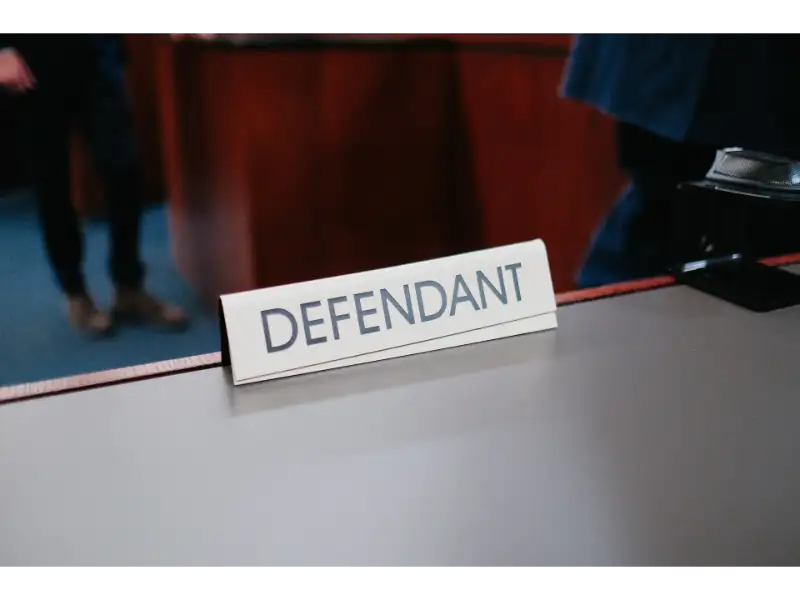If you have been served with a complaint, you are likely being sued. This can be an extremely stressful experience, but in legal situations, it’s important to stay calm and take time to understand your circumstances and the various legal processes involved before making any decisions. Although every personal injury case is unique, there are common elements and certain typical steps to be taken.
In this article, we’ll discuss how to answer a lawsuit and give information to those who have been sued to help them better understand the situation and make legally beneficial choices. Understanding court rules and civil procedure can be a crucial part of the court process.
First Steps in a Lawsuit Filing

Before deciding what to do regarding your summons and complaint, it’s important that you understand what steps have led to this point. At the center of any personal injury case is a claim that a person has been injured somehow. If you are being sued for personal injury, this means that the party suing you, otherwise known as the plaintiff, is alleging that you, the defendant, should be held responsible for their damages with the injury. Those damages may include medical expenses, lost wages, or pain and suffering, as well as additional financial burdens like credit card or collection issues.
Most likely, the plaintiff is suing because they believe that your negligence or wrongdoing was the direct cause of their injury. Most personal injury lawsuits fall into one of the following general categories:
- Traffic accidents
- Workplace accidents
- Wrongful death
- Slip-and-fall accidents
- Dog bite accidents
- Construction accidents
- Mass torts
In order to file their complaint, the plaintiff has likely already met with a personal injury attorney who has decided that damages are worth pursuing and conducted an exploratory investigation to determine that the case is viable. The complaint should detail the specifics of the case and what the plaintiff is seeking. As the defendant, you have been “served” with the official complaint and given a specific amount of days to file your answer to the complaint with the court clerk.
How to File an Answer to a Lawsuit

Answering a lawsuit is an important first step in any case, which involves submitting your answer to the complaint. Ignoring a lawsuit will not make it go away, and there is typically a deadline by which you must respond before facing consequences. Failure to respond in a timely manner or ignoring a lawsuit altogether can result in many negative outcomes, including a default judgment against you, garnishment of your wages, property seizure, and more.
That said, you should read the summons very carefully and determine when exactly you must respond by. Take whatever time is available to evaluate your options, which typically include:
Attempt Negotiations Directly with the Plaintiff
Even if you have been sued officially, you can still attempt to settle the situation with the plaintiff outside of court. Be sure to familiarize yourself with court rules during this process. However, it’s unlikely in most cases that plaintiffs will withdraw a lawsuit, as they’ve likely already discussed their options and been told by their legal counsel that a lawsuit is in their best interest.
File Your Response
This is the most common response to a lawsuit, often involving filling out a form with the court. Filing an answer allows you to address each allegation by denying or admitting full or partial fault. It tells the court that you intend to defend the debt case and prevents a default judgment in accordance with civil procedure.
File a Motion to Dismiss

A motion to dismiss extends the time you have to file your answer in your defense and asks a judge to dismiss the case based on your motion. This is a response used when you feel there is either a lack of jurisdiction or failure on the part of the plaintiff to state a valid legal claim in the complaint. Make sure to file a response timely.
File a Countersuit
A counterclaim could be filed on your behalf if the plaintiff’s claim arose from a situation in which you feel you have a legitimate claim against them. An example would be a car accident in which the plaintiff small claims you were at fault, but you believe they are at fault.
Ignore the Lawsuit
Doing nothing, although technically an option of self help, is never recommended. Ignoring a lawsuit can result in negative consequences and long-term financial and legal trouble. Some defenses must be stated in the answer or you may lose your right to use them in court.
If these steps seem overwhelming, don’t worry because you are not alone. The complexities of the legal process are often confusing for laypeople. Visiting a law library can be an option to provide affirmative clarity. But if you have been sued, it’s important to discuss your case with a personal injury attorney near you. Any type of case without an attorney is not possible, you must file a written response and get legal help. They can help you with the necessary filing fee waiver and paperwork with date and time.
An experienced personal injury lawyer can take the guesswork out of how to answer a lawsuit and help you understand your legal rights. Often, personal injury law firms offer free consultations that can help give you an idea of what options are available to you and how they may assist, including guidance on how to fill out an answer form responding to a lawsuit.
The Lopez Law Group Can Help
The Lopez Law Group’s Texas personal injury lawyers are committed to helping people navigate the complicated world of law. We know that being sued is a stressful experience, but rest assured that you have as many legal rights as the plaintiff and can ask the justice court for appropriate motions. If you’ve received a summons and complaint, take next steps and contact us today to schedule a no-obligation consultation served with a lawsuit. We are happy to advise clients on what is in their best interest regarding their specific case.
Our Texas-based personal injury law firm is proud to serve Weslaco, Mission, McAllen, Laredo, Edinburg, Corpus Christi, Brownsville, Harlingen, Houston, Tyler, Spring, and other locations throughout the state. Contact us online or call (956) 968-7800 to schedule your free case consultation.



